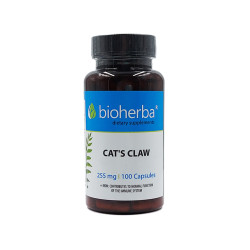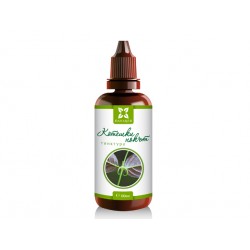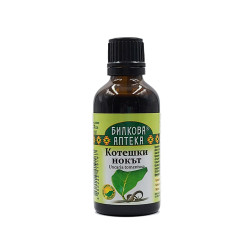This is what they call the Uncaria tomentosa plant. Cat's claw is a liana that grows in the tropical areas of Central and South America. The plant wraps around trees, reaching up to 30 meters in length. Spikes with a curled shape like claws grow on it. Hence the name "Cat's Claw". South American Indians are traditionally celebrated as some of the healthiest people in the world. They rarely get cancer or infectious diseases. The secret of their immunity is due to the use of cat's claw and other plants typical of the region, which have been used for centuries.
Why is the plant the #1 immunomodulator in the world?
It contains two different groups of chemical compounds from the group of alkaloids, specifically pentacyclic oxindole alkaloids (POA) or tetracyclic oxindole alkaloids (TOA). Groups have different effects on the body.
Pentacyclic oxindole alkaloids (POAs) have primarily immune-enhancing functions:
- strengthen the immune system by destroying many types of pathogenic microorganisms living in the digestive system
- support T-immune cells, which have been shown to have lower levels in active athletes
- increase the efficiency of macrophages (a type of immune cell)
- increase the anti-cancer abilities of the immune system based on the principle of regulation of apoptosis /programmed cell death/
- participate in the regulation of cytokine production - the so-called mediators of immunity
- improve the body's general ability to cope with viral infections
Other positive health effects: The cat's claw has been suggested to exhibit antioxidant activity.
In addition to alkaloids, cat's claw also contains flavonoids, triterpene compounds, organic acids, and tanning substances. The biological effects of the plant are due to them, namely: antioxidant, antiseptic, antispasmodic, hypotensive, hepatoprotective, choleretic, diuretic, and detoxifying action. Cat's claw is useful for increasing the body's resistance to infectious diseases, in the treatment of arthritis, bursitis, diseases of the gastrointestinal tract, respiratory tract, prostatitis, inflammatory diseases of the female reproductive system, and disorders of the menstrual cycle.
Contraindications for taking cat's claw
Pregnant women or nursing mothers. Children under two years of age. People with transplanted organs. People with autoimmune diseases and allergies, blood clotting problems or tuberculosis, and people with malignant diseases in the acute phase should also not use the herb.
It is not advisable to take Cat's Claw in combination with hormones or insulin.
What doses are needed and how is it taken?
Alkaloid concentrations in the extract determine dosages. At a 4% concentration of alkaloids, doses range from 250 to 1000 mg/day.
Most often, cat's claw is used in immunostimulants, and antioxidants. Less commonly, we will find it in some digestive enhancers to eliminate pathogenic strains of bacteria in the stomach and intestines.
A good combination to potentiate the immunomodulatory action is to combine a cat's claw with echinacea.







